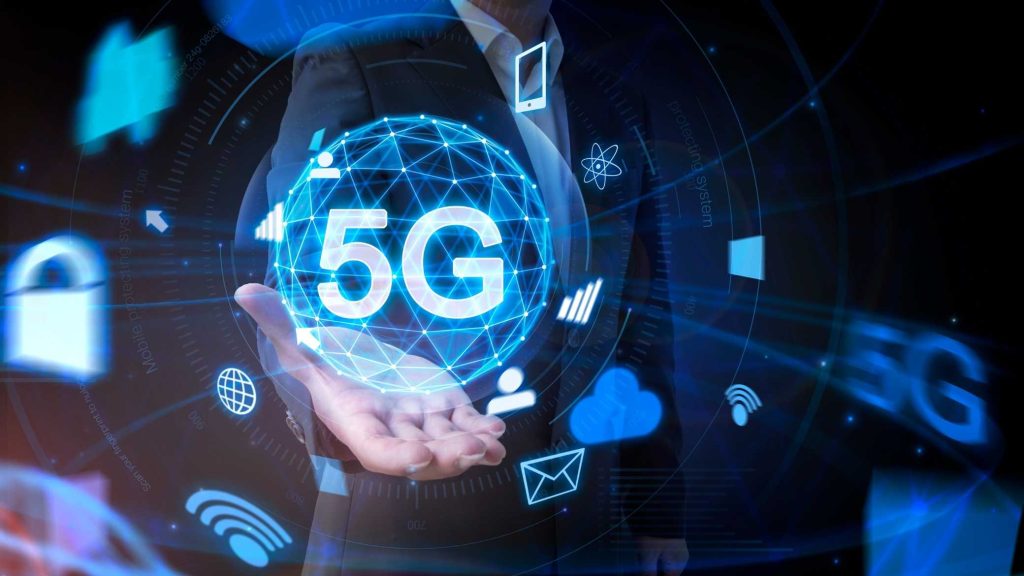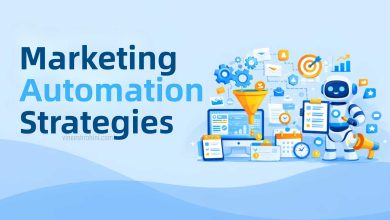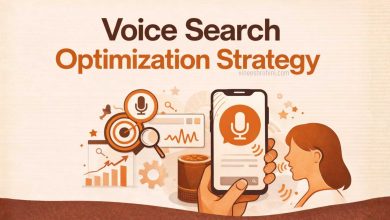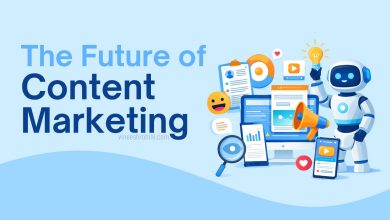The Future of Digital Marketing 2025: A Comprehensive Guide
The Future of Digital Marketing: The digital marketing landscape is undergoing rapid evolution, and by 2025, it is set to be more dynamic and transformative than ever before. With advancements in technology, changing consumer behavior, and an increased emphasis on personalization, the future of digital marketing promises to reshape the way businesses engage with their audiences. Let’s explore the trends and innovations that will define digital marketing in 2025.
Table of Contents
1. Artificial Intelligence and Machine Learning

AI and machine learning are already pivotal in digital marketing, but by 2025, they will dominate the industry. These technologies will enable businesses to:
- Predict Consumer Behavior: AI algorithms will analyze vast amounts of data to predict what consumers want and when they want it. This will allow marketers to deliver highly targeted content.
- Enhance Personalization: Personalized marketing will reach new heights, with AI crafting messages, product recommendations, and offers tailored to individual preferences.
- Automate Processes: Tasks like content creation, ad optimization, and customer service will be streamlined with AI tools, freeing up human resources for strategic planning.
Read more: 10 Best AI Digital Marketing Tools 2025 : Comprehensive Guide
2. Voice Search Optimization
With the proliferation of smart speakers and voice assistants like Alexa, Google Assistant, and Siri, voice search will account for a significant portion of online queries in 2025. Marketers will need to:
- Optimize for natural language queries.
- Focus on long-tail keywords.
- Develop conversational content to rank higher in voice search results.
Voice commerce is also expected to grow, making voice-activated purchasing a key area for businesses to invest in.
3. Immersive Technologies: AR and VR
Augmented Reality (AR) and Virtual Reality (VR) will transform how brands interact with their audiences. By 2025:
- AR in E-commerce: Consumers will virtually try on clothes, see how furniture fits in their homes, or visualize products in real-world settings before purchasing.
- VR Experiences: Brands will create immersive virtual experiences, such as virtual store tours or product launches, to engage customers more deeply.
These technologies will bridge the gap between online and offline shopping, enhancing customer satisfaction and driving sales.
4. Data Privacy and Ethical Marketing

As consumers become increasingly concerned about their privacy, businesses must adapt by embracing transparency and ethical practices. By 2025:
- First-Party Data: Companies will rely more on first-party data (information collected directly from consumers) as third-party cookies phase out.
- Regulations Compliance: Stricter data protection laws worldwide will require businesses to be more diligent in obtaining consent and securing customer data.
- Trust Building: Brands that prioritize ethical marketing and respect consumer privacy will gain a competitive edge.
5. Content Marketing and Storytelling
Content will remain king, but its format and delivery will evolve. By 2025:
- Interactive Content: Quizzes, polls, and augmented reality experiences will make content more engaging.
- Short-form Videos: Platforms like Insta Reels have already popularized bite-sized videos, and their prominence will continue to grow.
- Authentic Storytelling: Brands will focus on sharing genuine stories that resonate emotionally with their audiences.
6. Rise of the Metaverse
The metaverse—a collective virtual shared space—will redefine digital marketing. By 2025:
- Virtual Real Estate: Brands will invest in virtual spaces to showcase their products and services.
- Digital Avatars: Personalized avatars will serve as brand ambassadors, interacting with consumers in the metaverse.
- New Advertising Formats: Innovative ad placements within virtual worlds will open up new revenue streams.
7. Social Commerce Expansion

Social media platforms will continue to integrate e-commerce features, blurring the lines between social networking and online shopping. By 2025:
- Shoppable Posts: Consumers will complete purchases directly from social media posts.
- Live Shopping Events: Livestreamed sales will become a mainstream way to showcase products and drive immediate purchases.
- Influencer Partnerships: Collaborations with influencers will remain crucial, but micro and nano-influencers will gain more prominence due to their niche audiences and higher engagement rates.
Buy now: Professional Digital Marketing Course
8. Sustainability and Purpose-Driven Marketing
Consumers in 2025 will increasingly prioritize brands that demonstrate a commitment to sustainability and social responsibility. Marketers will need to:
- Highlight eco-friendly practices and sustainable products.
- Collaborate with organizations that align with their values.
- Engage in cause marketing to support social and environmental initiatives.
9. 5G and Connectivity

The global rollout of 5G technology will revolutionize digital marketing by providing:
- Faster Load Times: Websites and apps will deliver seamless experiences, reducing bounce rates.
- Enhanced Video Quality: High-definition and 4K videos will become standard, enabling richer storytelling.
- Real-Time Engagement: Marketers will interact with audiences instantly through live streams, AR experiences, and more.
10. Predictive Analytics and Big Data
Data-driven decision-making will become more sophisticated by 2025. Predictive analytics will help businesses:
- Anticipate market trends and consumer needs.
- Optimize marketing strategies for maximum ROI.
- Identify high-value customers and focus resources on retaining them.
Buy now: Professional Digital Marketing Course
Conclusion
The future of digital marketing in 2025 will be characterized by technological innovation, deeper personalization, and a heightened focus on ethical practices. Marketers who adapt to these trends and leverage emerging tools will thrive in an increasingly competitive landscape. As businesses prepare for this exciting future, they must remain agile, prioritize customer experience, and stay ahead of the curve to succeed in the ever-evolving digital marketing ecosystem.



